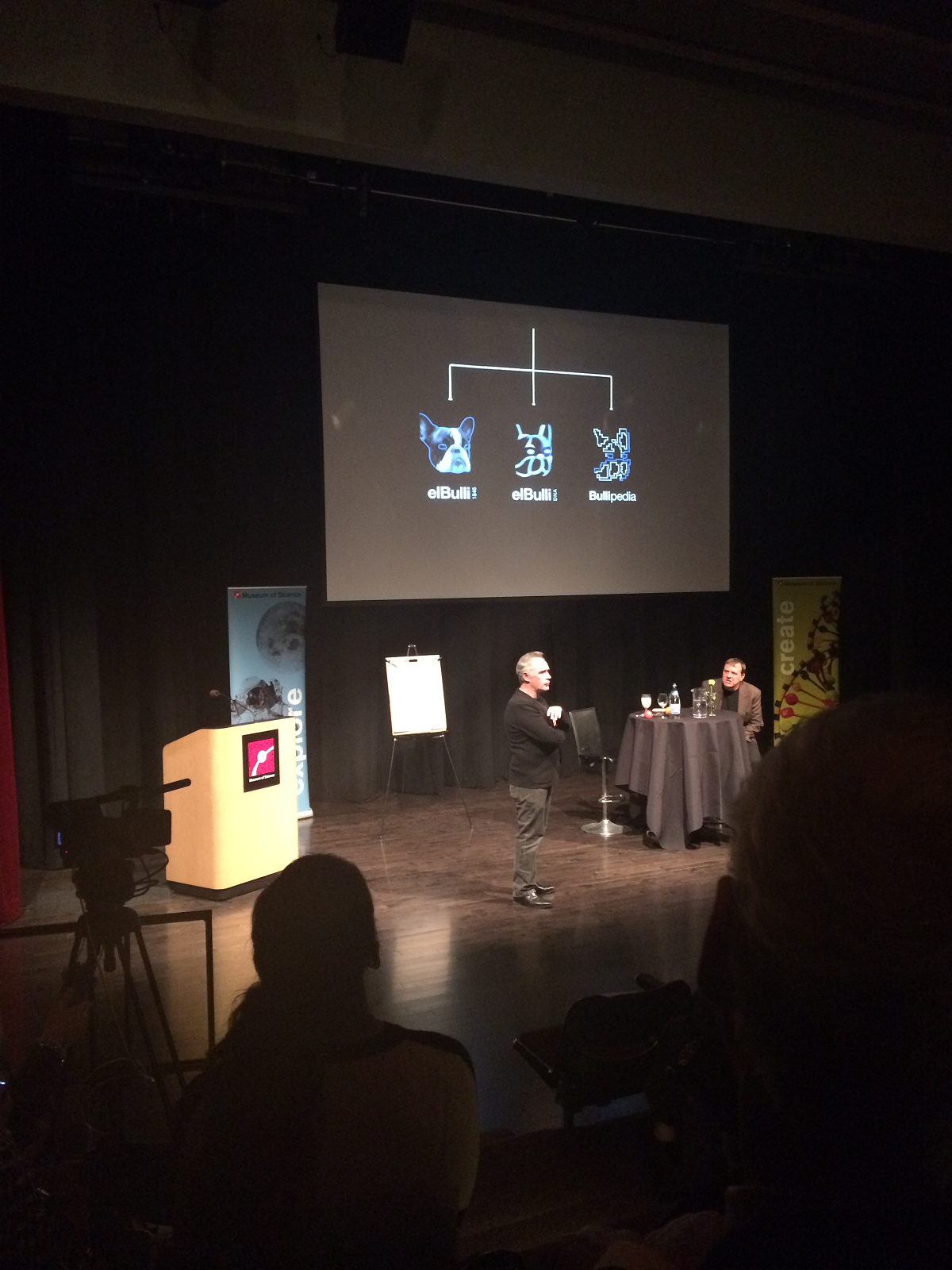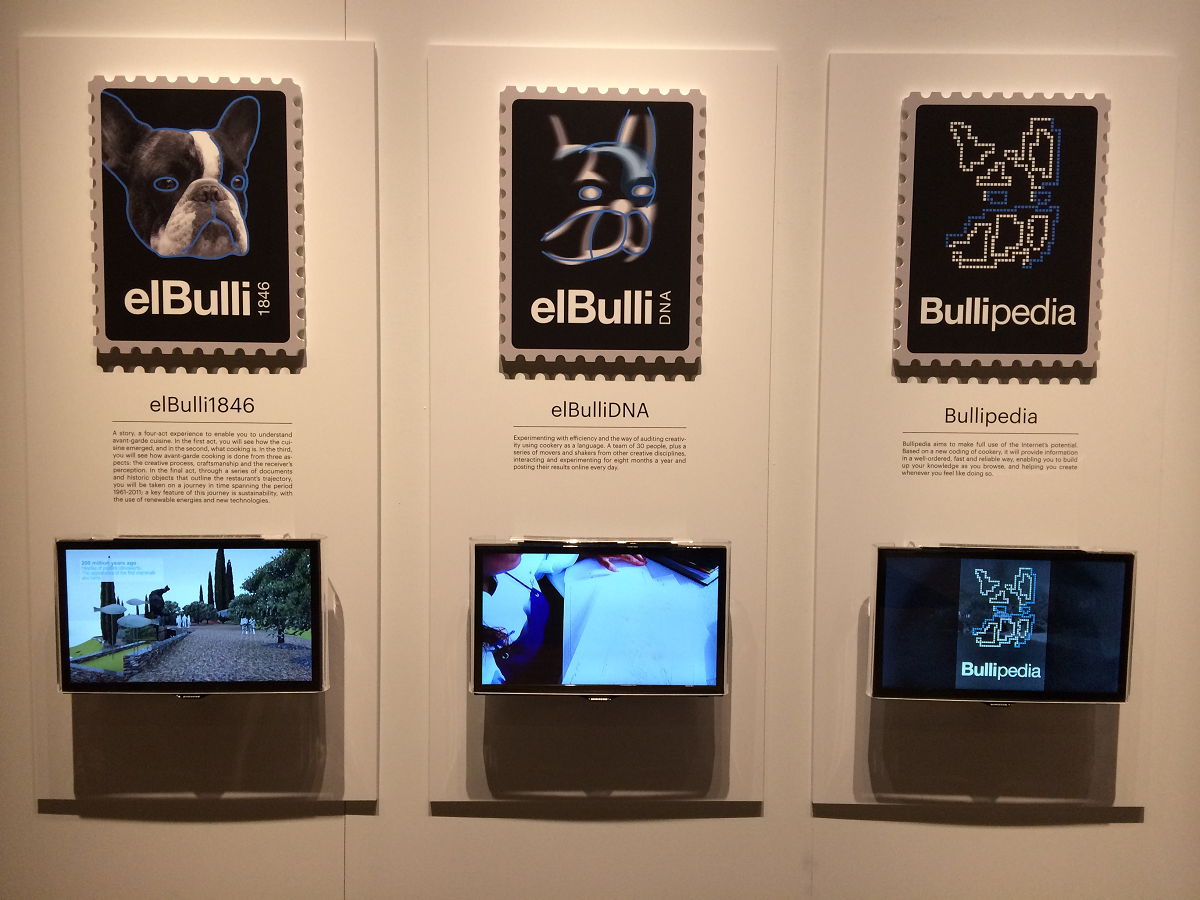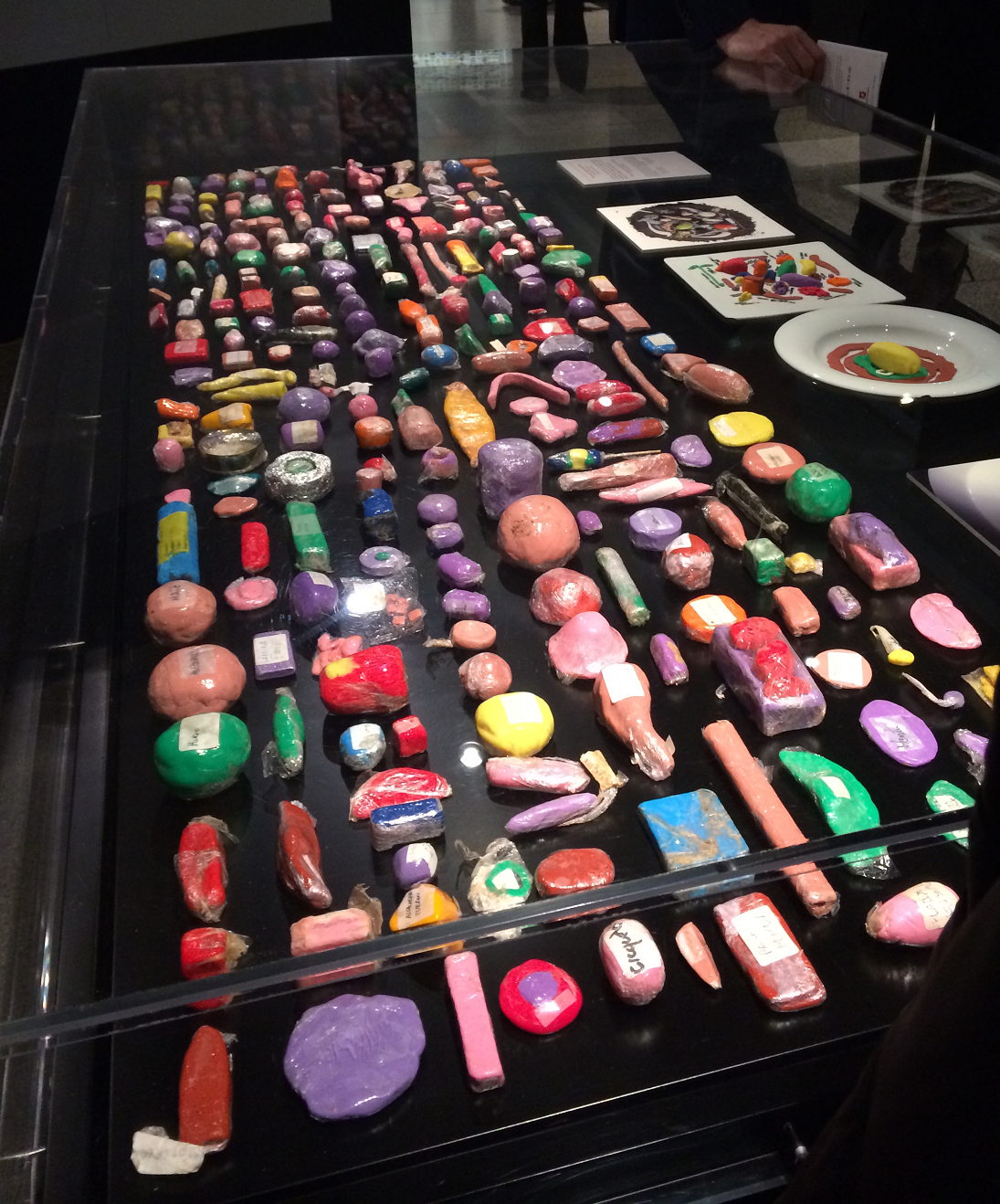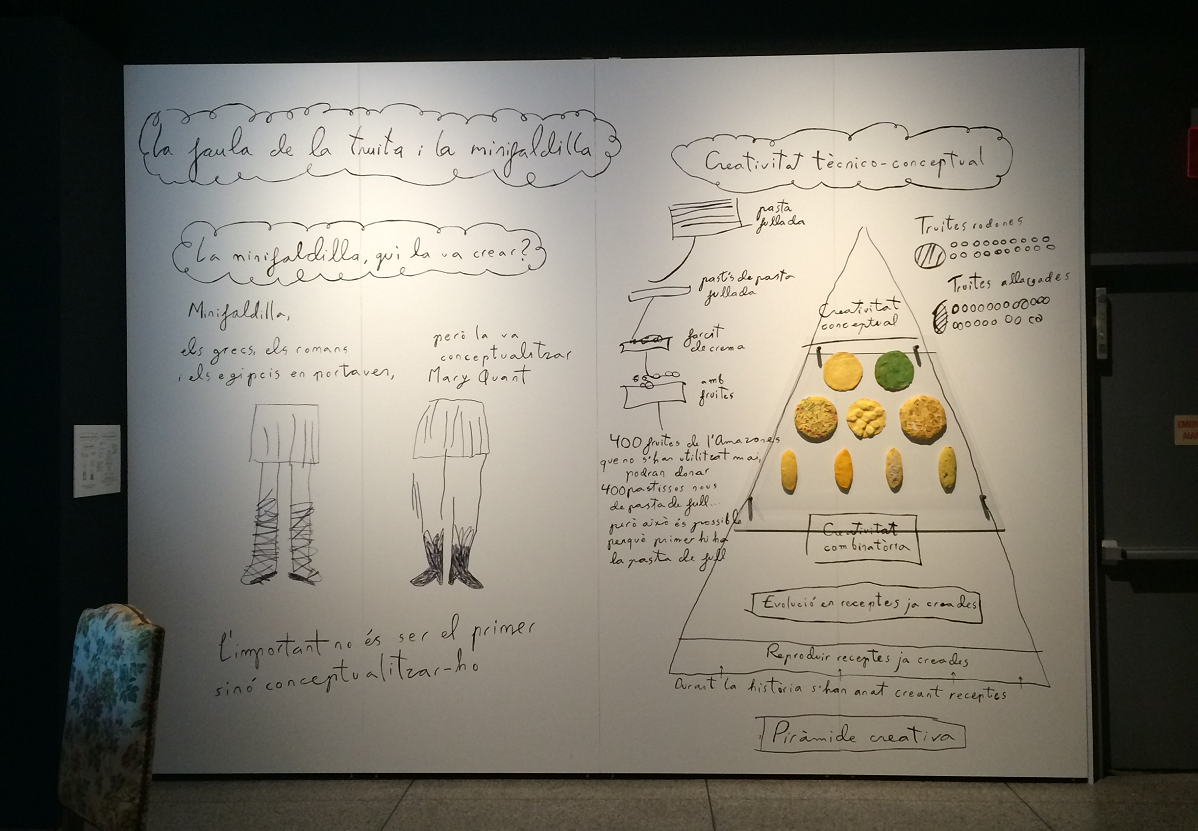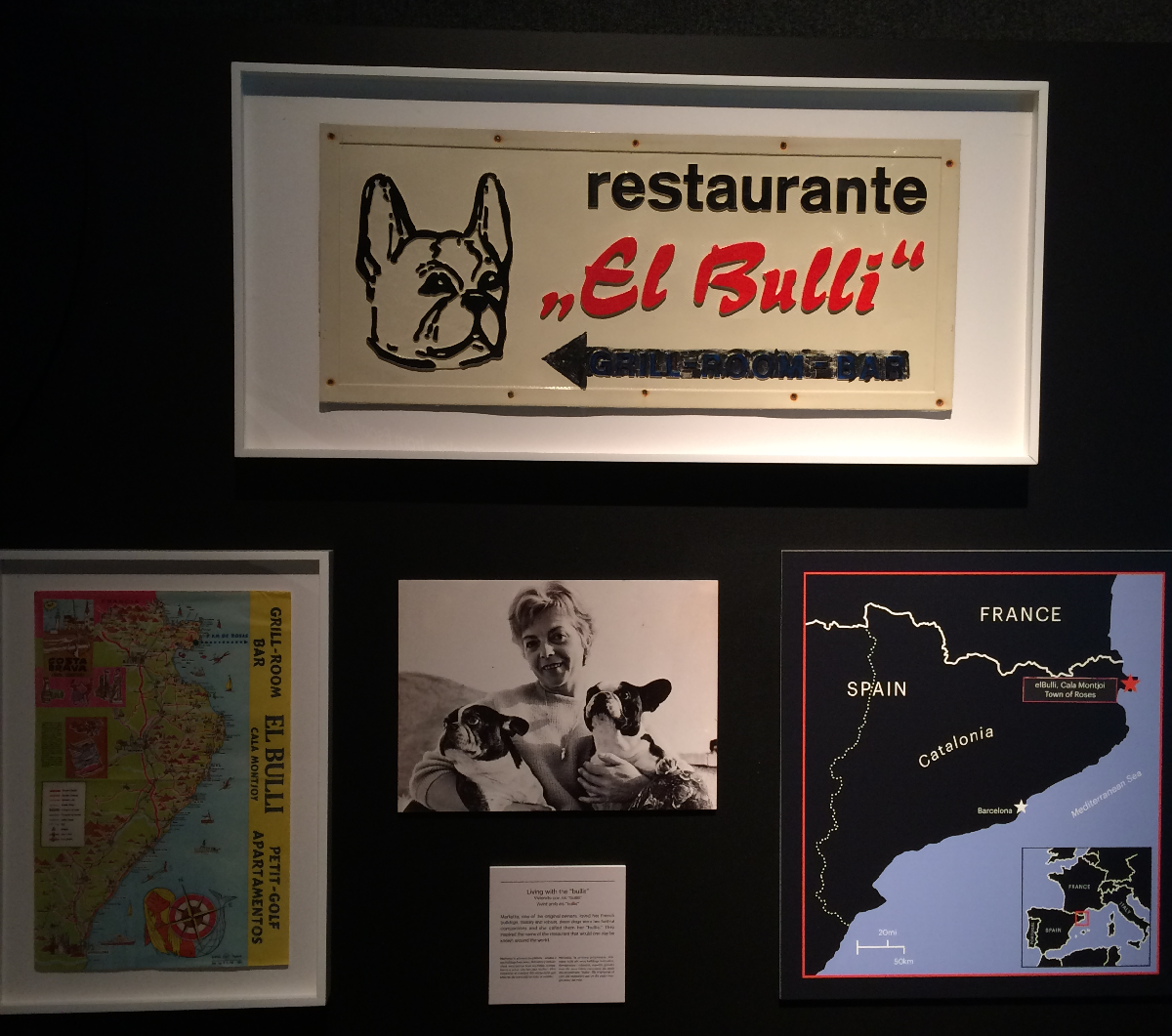Preview Ferran Adria’s Innovation in the Art of Food Exhibit at the Museum of Science
Saturday marks the debut of Innovation in the Art of Food at the Museum of Science, an exhibit devoted to chronicling the works and creative process of world-famous Spanish chef Ferran Adria of the now-closed elBulli. While elBulli as a restaurant may be closed, Adria is hard at work developing the elBulli foundation, a multi-pronged think tank of sorts with a focus on creativity and innovation that will debut in 2016. In advance of the exhibit’s opening, Adria gave a lecture at the museum last night on the relationship between science and cooking, and why this relationship is essential for innovation. What you need to know, ahead.
The Museum of Science will become an a “world hub” for learning about food. It isn’t mere coincidence that the collaboration between the Government of Catalonia, the Institut Ramon Llull, and Estrella Damm Barcelona made its debut on US soil at the Museum of Science in Boston. In a short speech introducing Adria, MoS president Ioannis Miaoulis, a self-described “foodie,” declared that his goal is for the museum to become a “world hub” for learning about food. Miaoulis forged a friendship with Adria years ago after he had a meal at elBulli, and he was only able to snag a table, he says, because he sent a note to Adria detailing a course he then taught at Tufts—called Gourmet Engineering—and Adria got him in.
The elBulli Foundation has three main prongs. When elBulli’s reincarnation as the elBulli Foundation launches in 2016, there will be a 7,000 sq-meter space that will be open to visitors—and, Adria teased, will serve dinner one month out of every year (good luck getting into that). The three facets of the foundation will be as follows:
1. elBulli1846, a lab (named for the 1,846 dishes created at elBulli) that will focus on innovation and fostering understanding about avant-garde cuisine. Per the exhibit, “a key feature of this journey is sustainability, with the use of renewable energies and new technologies.”
2. elBulliDNA, a team of 30 people who conduct creative cooking experiments and post them online.
3. Bullipedia, sort of like a Wikipedia for avant-garde cuisine. “There is no question that Wikipedia is a great tool,” Adria said in his lecture. “But it doesn’t understand taxonomy.” Bullipedia, then, “is based on that—to understand cuisine and create a taxonomy.”
Boston institutions are an integral part of Adria’s work. In addition to this exhibit running in the museum and Adria’s famed collaboration with Harvard on its Science + Cooking lectures, Adria is working with the MIT Media lab on elBulli1846. In his lecture, Adria said (via a translator), “Over the last two and a half years, I’ve spent more time in Boston than I have at elBulli.” In an interview after the talk, he told me that it was “destiny” that this exhibit is debuting in the same city as Harvard and MIT: “That’s fate. It’s excellent that it happened in Boston. When Ioannis [Miaoulis] proposed it, it was terrific. Many people have known about elBulli here in Boston. And that will help the understanding of elBulli,” he said. “Every time I come to Boston it makes me reflect, it makes me learn, and it enriches me. It’s a place that enriches you.”
If you’re even just the tiniest bit of a food geek, get over to the MoS stat. At the end of the lecture, attendees were able to roam the exhibit, which includes: photos of all 1,846 dishes created at elBulli; two tables that simulate a 30-odd course meal at the restaurant; an array of cooking gadgetry employed by Adria to create his signature dishes; clay models used for mock plating; and much more.
